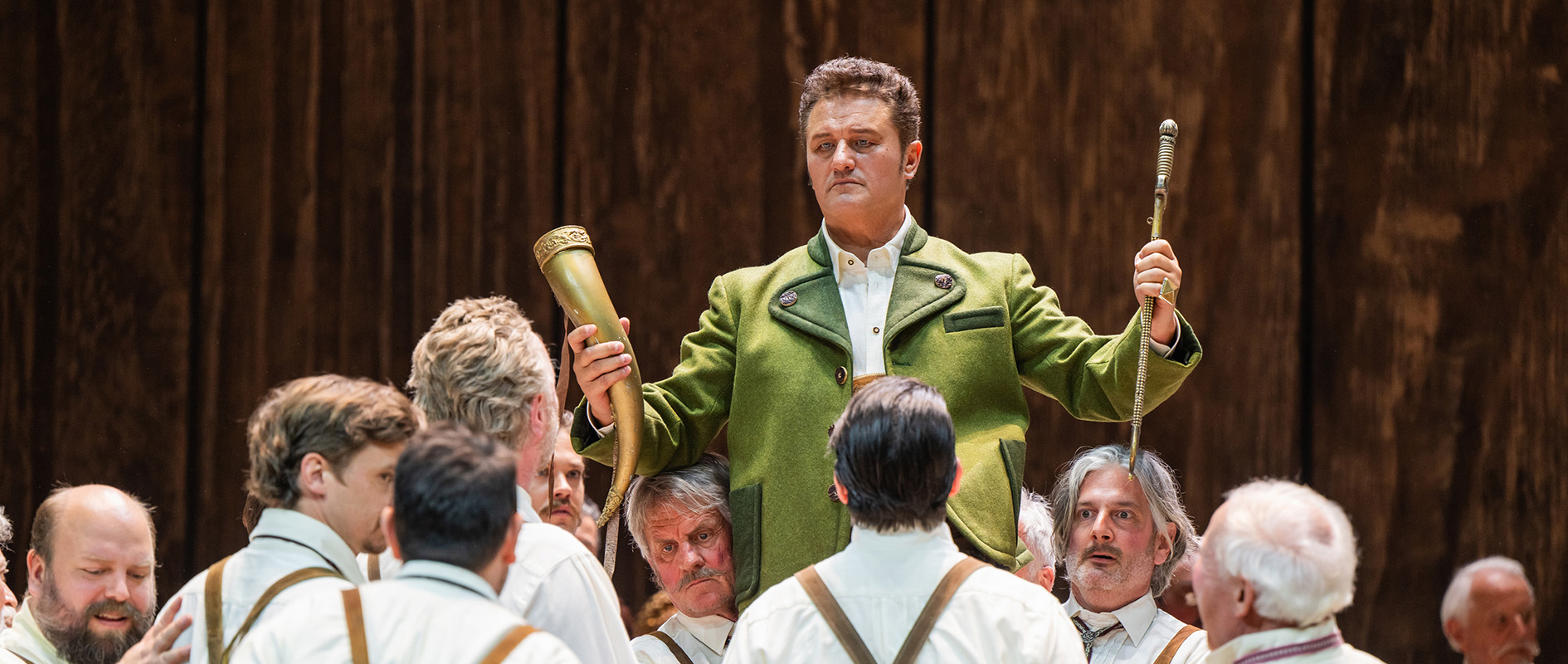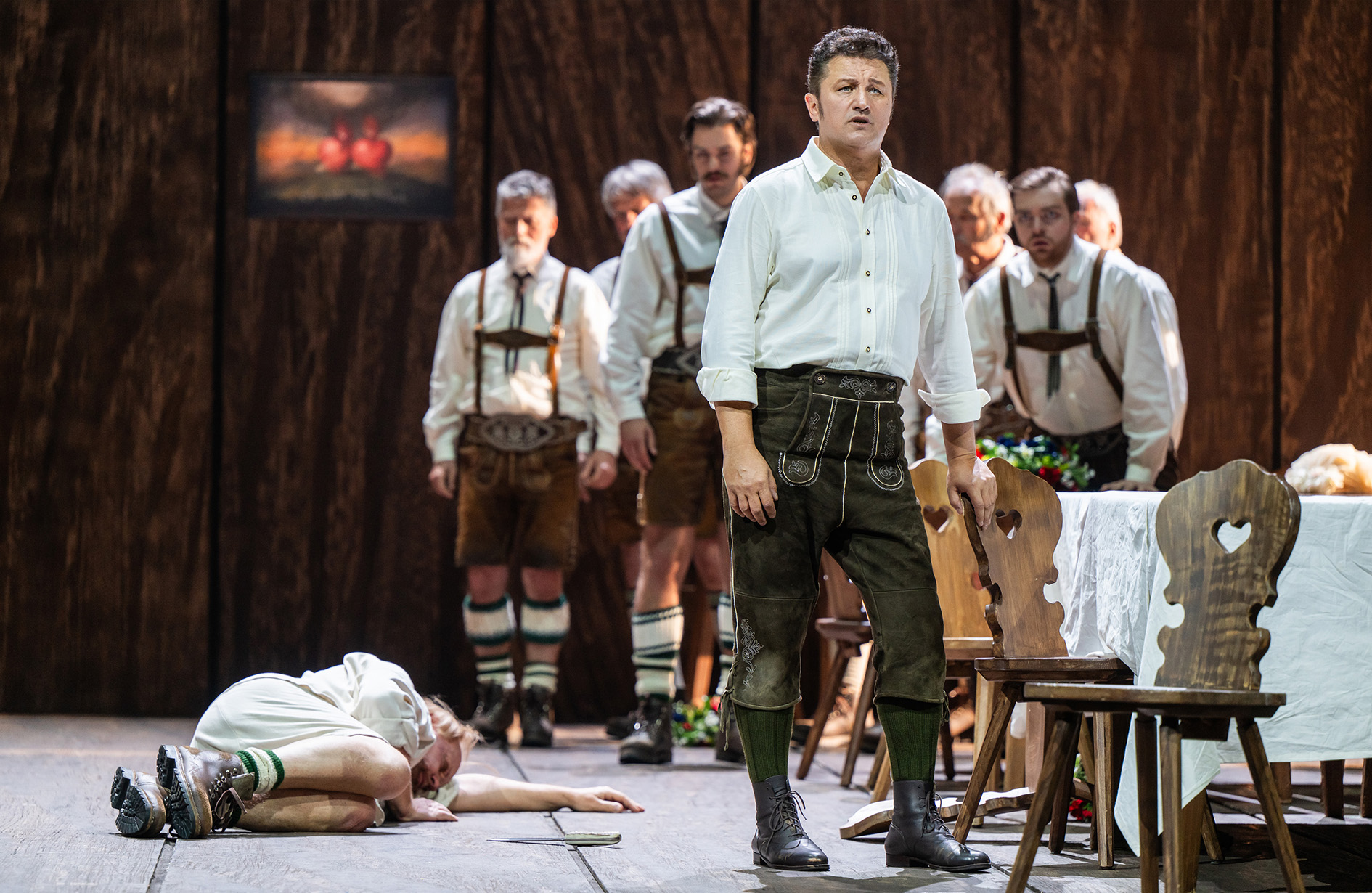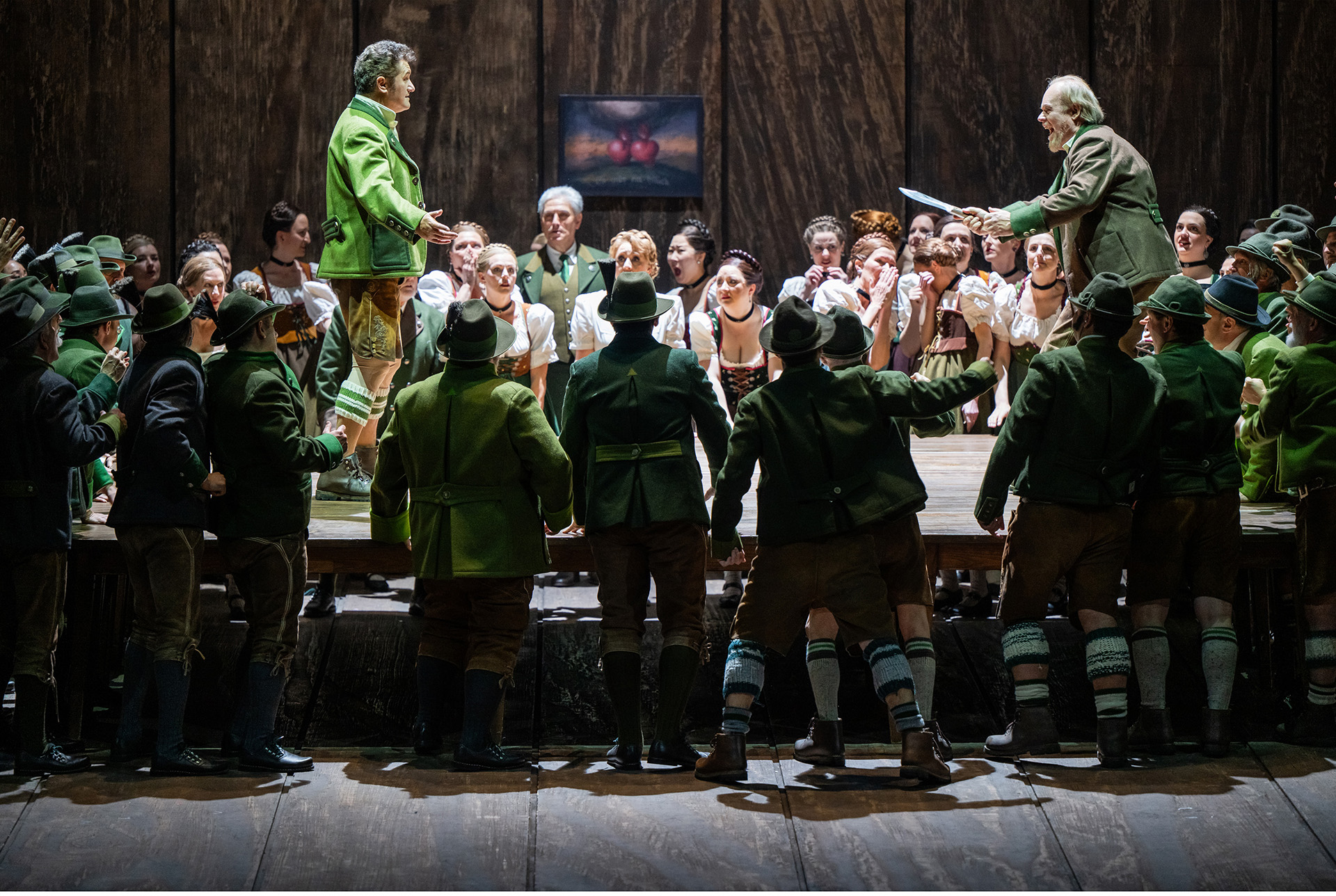 The swan knight in a cramped room. Piotr Beczała as Lohengrin on stage in Zurich
The swan knight in a cramped room. Piotr Beczała as Lohengrin on stage in Zurich
He sings like an Italian tenor — with a voice full of longing and warm tone, wrote the German press about Piotr Beczała after his debut as Lohengrin in 2016 at the Semperoper in Dresden. Since then, the role has become a staple of the Polish tenor’s repertoire, so it comes as no surprise that he was invited to revisit it at Zurich Opera — a house where he was a long-time ensemble member and to which he regularly returns.
Piotr Beczała made his debut on the Zurich stage in 1997 in Frank Martin’s oratorio “Le vin herbé” as Tristan. Over nearly two decades, he brought to life characters from the French, German, and Italian repertoire for local audiences, showcasing the full range of his artistry. His portrayal of Sou-Chong in Franz Lehár’s operetta “The Land of Smiles” earned him the title of Zurich’s undisputed audience favourite among critics. When he debuted as Manrico in Verdi’s “Il trovatore” in 2021, he impressed with his high C. Similarly glowing reviews followed his performances in Gounod’s “Faust,” Donizetti’s “Lucia di Lammermoor,” Verdi’s “Un ballo in maschera,” and Puccini’s “Turandot.” Many of these productions have been recorded and released by Zurich Opera. Interestingly, the program booklet for “Lohengrin” notes that since 2012, Piotr Beczała has held Swiss citizenship. For the Polish community living in Switzerland, this evokes a famous 1933 speech in Geneva by the President of the Swiss Confederation, honouring Ignacy Jan Paderewski: My country does not award medals or decorations. It has a more modest way of expressing affection to its guests—it welcomes them into the family.
I had the pleasure of watching “Lohengrin” together with Lidiia Vodyk, coach at Zurich Opera, and pianist Tomasz Domański. We were glad to have caught the final performance, which was warmly received by the local press. The April–May run was a revival of a production that originally premiered eleven years ago. Director Andreas Homoki contrasts the idea of a utopian world with the everyday reality of a small, divided community. This sense of claustrophobia is emphasized through the set design: the entire opera unfolds within a single wooden room, where a funeral, a wedding, a village assembly, and an intimate lovers’ encounter all take place. As time passes, the room feels increasingly cramped and stifling — even to the audience.
Richard Wagner’s “Lohengrin” can be described as a kind of fairy tale. A divine messenger, arriving in a boat pulled by a swan (many verses are sung about the bird), comes to the rescue of Elsa, falsely accused of murdering her brother. Lohengrin defeats Telramund, Elsa’s former guardian and Ortrud’s husband. He pledges his love to Elsa under one condition: that she must never ask him his name. She agrees, but eventually – manipulated by Ortrud – breaks the promise and asks the forbidden question.
The Zurich performance captivated from the very first notes, driven by the orchestra’s vibrant playing and Axel Kober’s subtle yet powerful conducting. During the intermission, as we exchanged thoughts, the phrase “magical beginning” came up unanimously. Particularly notable was the timpani solo by Renata Walczyna at the start of Act II, which heightened the tension and atmosphere. Wagner did not see music as a standalone form — his “Gesamtkunstwerk” or “total work of art” was meant to combine music, drama, scenery, and acting, and the orchestra certainly lived up to that vision.
Beczała’s portrayal of Lohengrin combines strength with tenderness. His assured performance lived up to the high expectations of an audience well acquainted with and fond of the tenor. Anna Smirnova also delivered an outstanding performance as Ortrud. Although her role is limited in Act I, her presence was impossible to ignore. Dominant and scheming, she remains on stage, ever watchful, waiting to shatter the peace of the innocent and trusting Elsa, portrayed by Simone Schneider. In this power dynamic — shaped by direction and acting — Telramund (Martin Gantner) seems to possess only as much strength as Ortrud allows or grants him.
Andreas Homoki rejects the interpretation that Wagner’s operas depict only women subjugated to men. In his staging, there is both tenderness and power, as well as mystery born from the obligations of the central character. Musicologists writing about the opera’s libretto point to events in Dresden in 1848–49, during the Revolutions of 1848, and the fight against absolutism and for German unification. In “Lohengrin,” one can hear echoes of this revolution, the struggle between the old and the new order. Interestingly, it is women who stand on both sides of this conflict — the instigating Ortrud and the trusting Elsa.
Zurich’s “Lohengrin” regularly sails back onto the stage, and although it will not be performed again this season, it is well worth watching for the white swan – especially when Piotr Beczała comes aboard.
Who? What? Where? When?
“Lohengrin” by Richard Wagner
Opernhaus Zürich
April 13 – May 4, 2025






